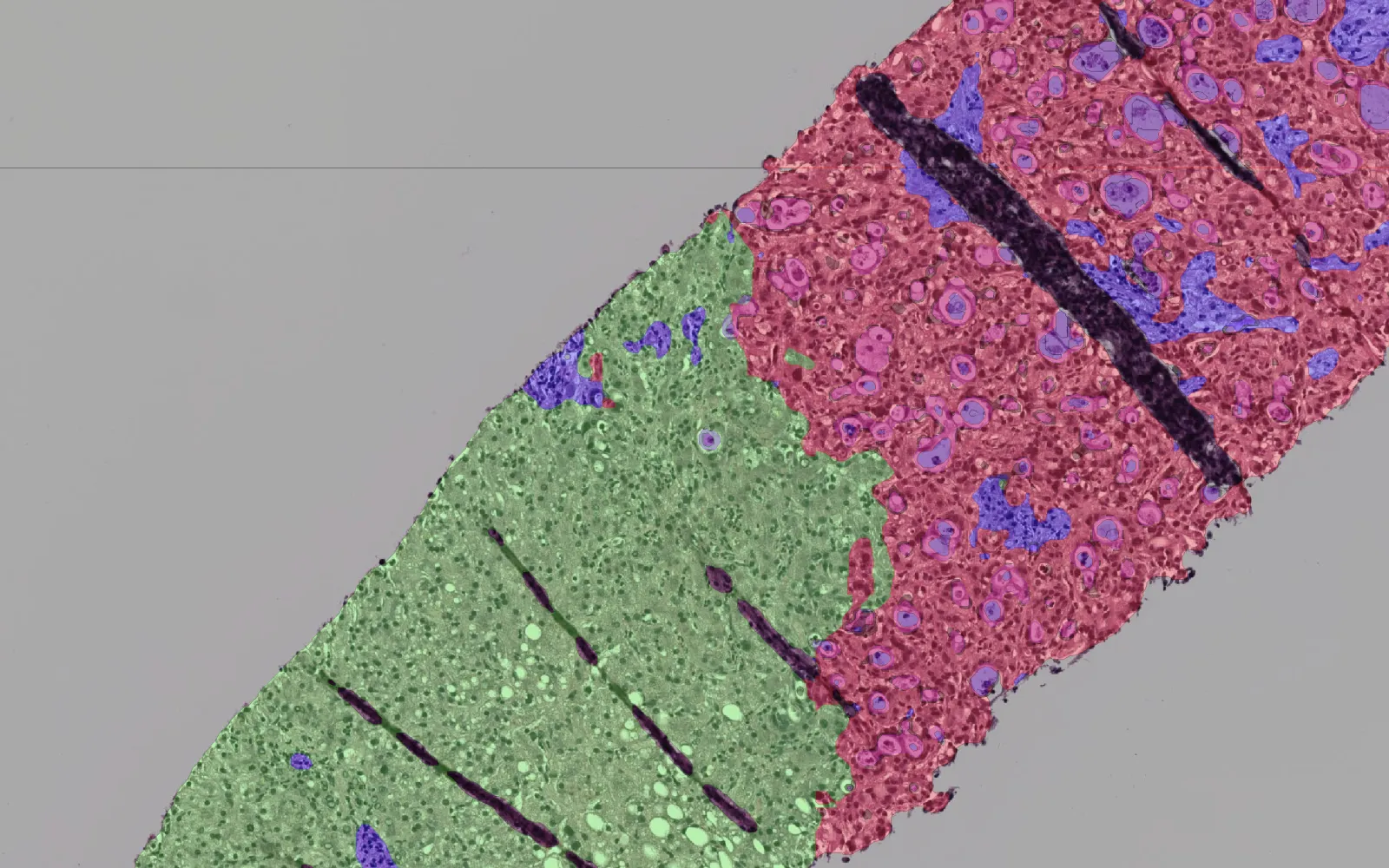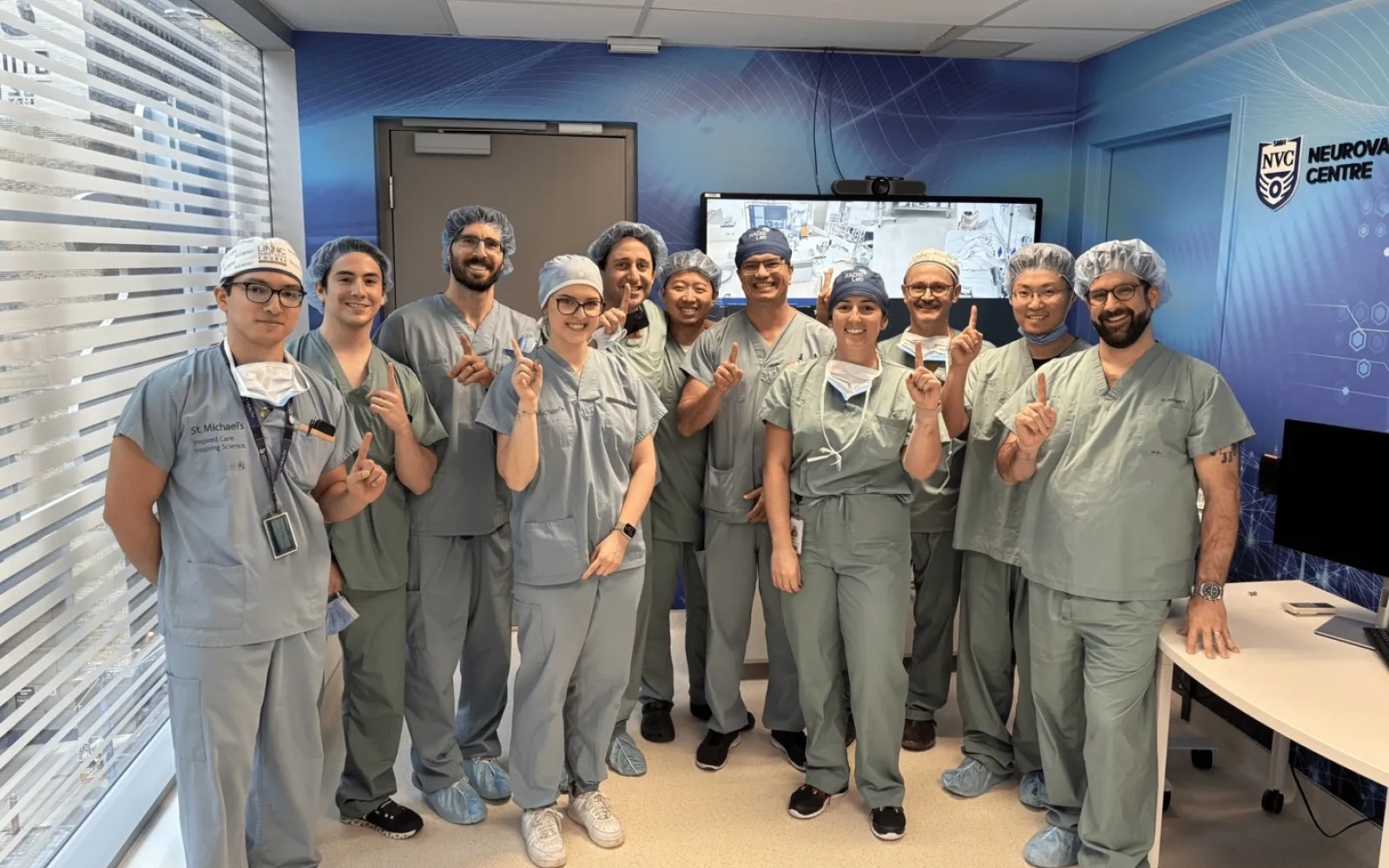
Valar Labs
Using AI models trained on digital pathology images to help oncologists make smarter cancer treatment decisions
When a cancer therapy comes along, such as Bacillus Calmette-Guerin (BCG) immunotherapy for bladder cancer, one of the things oncologists would like to know is why only some cancer patients are helped. If they could predict in advance which patients will and won’t respond, they could spare the non-responders the unnecessary toxicity and direct them toward alternative treatments.
It turns out those are questions doctors can now start to answer — but only with the help of AI.
The founders of Palo Alto-based Valar Labs, one of the newest companies in the DCVC portfolio, have created a “computational histology” platform that can scan images of tissue slices from tumors and predict their future course. Valar’s first test, for bladder cancer, can predict not only whether a tumor in the bladder lining is likely to get worse and invade the muscle wall, but also whether BCG therapy will work. (BCG treatment uses the same strain of Mycobacterium bovis used to vaccinate people against tuberculosis; it stimulates the body’s own immune cells to attack bladder tumors.) Similar diagnostic reports should help oncologists make better treatment decisions about pancreatic cancer and many other solid-tumor cancers.
Valar trains the machine-learning models at the heart of Valar’s platform on thousands of digital pathology images. The models look for subtle details like the shapes and locations of tumor cells, picking up on patterns in the slides that are associated with worse outcomes — patterns that human pathologists might miss.
The company showed in a study published last month in the Journal of Urology that bladder cancer patients whose pathology slides included specific computational biomarkers were three times more likely to develop muscle invasive disease and half as likely to respond to BCG therapy. Also last month, Valar introduced a commercial version of the bladder cancer test called Vesta. And to help roll out the product and keep advancing its science, the company just announced that it has raised $22 million in Series A funding in a round co-led by DCVC and Andreessen Horowitz.
Bladder cancer is only the beginning. The potential applications of Valar’s style of computational histology could extend, in effect, to any cancer where the company can gather enough digital pathology images to train its models. A big-data approach to the problem is important because most cancer patients lack simple genetic biomarkers — such as the HER‑2 gene often found in women who develop breast cancer — that can guide doctors to specific treatment. (HER-2-positive women usually undergo surgery, chemotherapy, and treatment with the antibody drug Herceptin.) For these patients, sensitive AI-driven tests like Vesta could fill the gap and help doctors provide precision cancer care to every patient.
We see Valar as a leader in an emerging group of TechMed startups that harness AI and the power of data to augment (not replace) physicians’ capabilities. CEO Anirudh Joshi calls Valar’s technology a “co-pilot” for oncologists — a tool that doesn’t simply automate the analysis of pathology slides, but provides actionable predictions. “There are a lot of ‘digital pathology 1.0’ companies that build AI to make grading slides faster,” Joshi says. “What we do goes beyond that. We call it ‘digital pathology 2.0,’ where it’s predicting the downstream outcome of treatment, which is something we could never do until AI got more sophisticated.”
Histology has always been one of the keys to diagnosing cancer, but Valar is showing that there are unexpected depths in the digital slides pathologists review every day. We’re proud to help lead their funding round, and we can’t wait to see where they take the technology next.
James Hardiman is a General Partner at DCVC.




